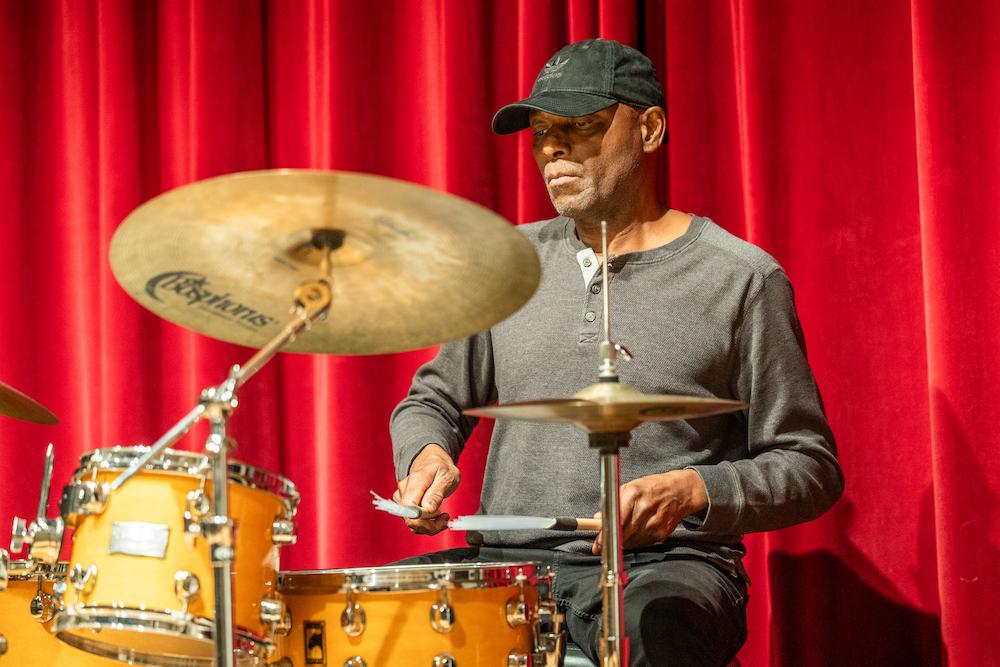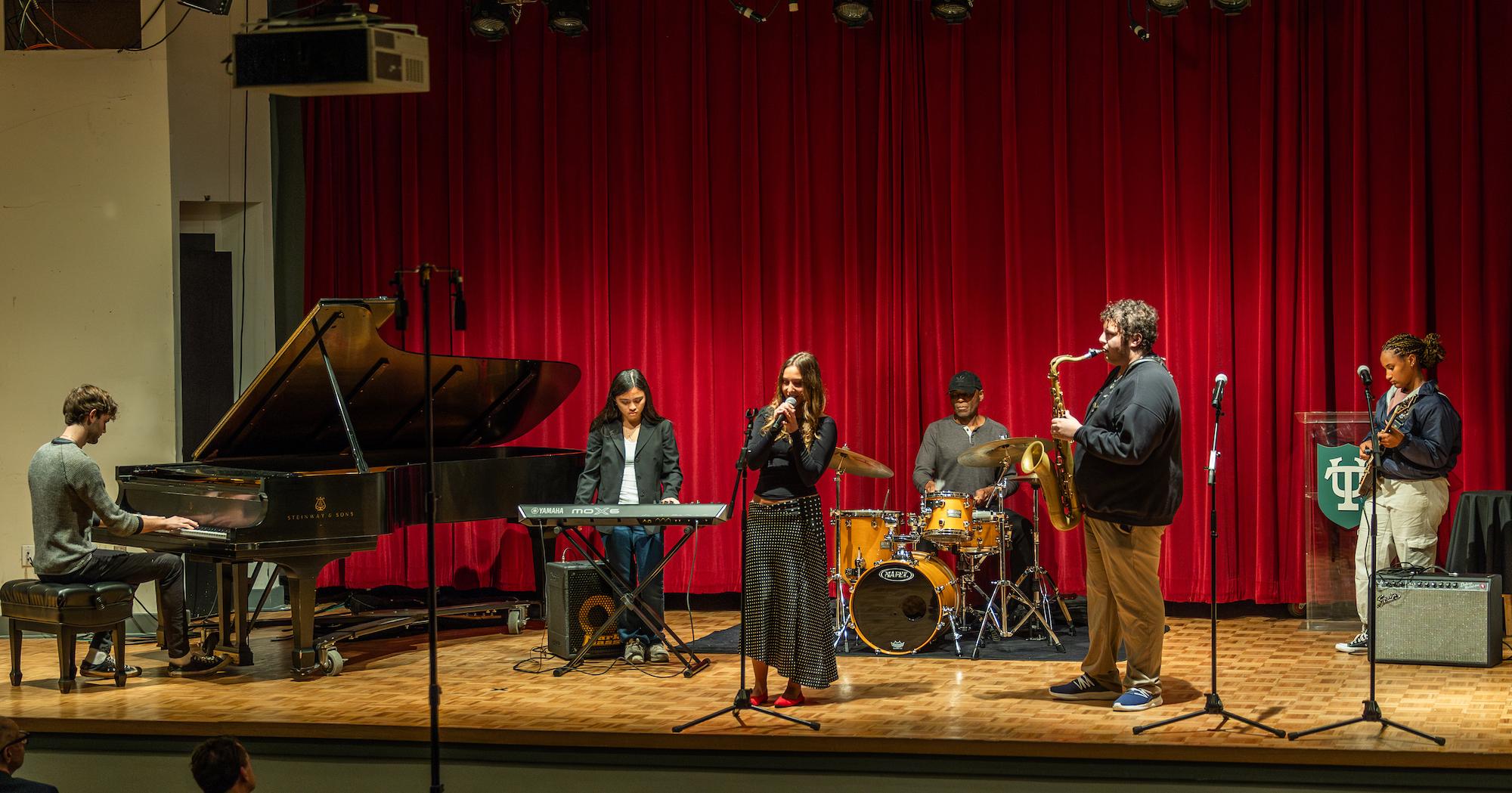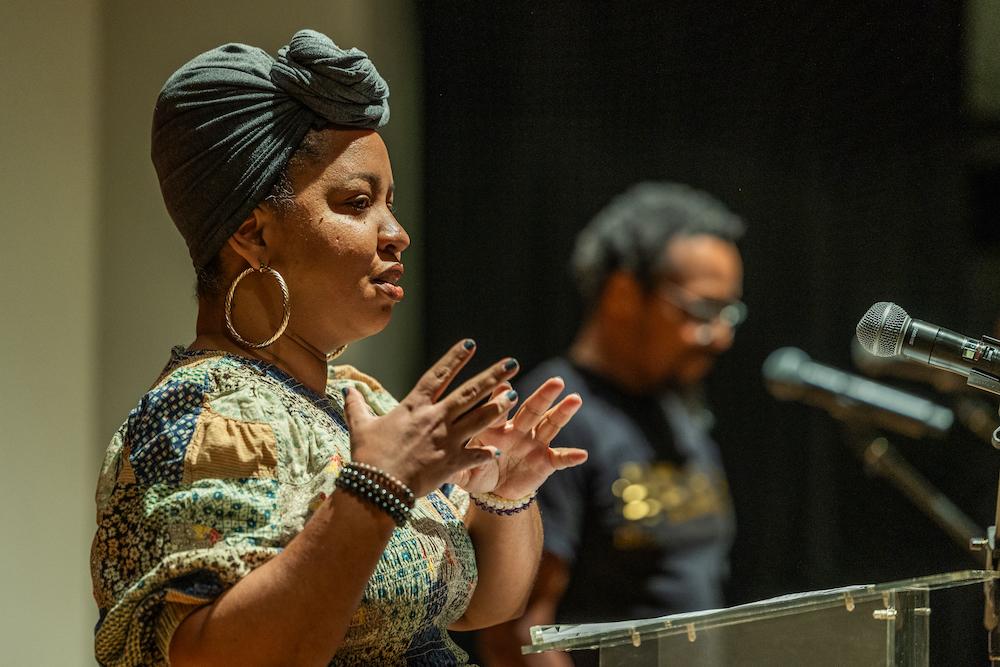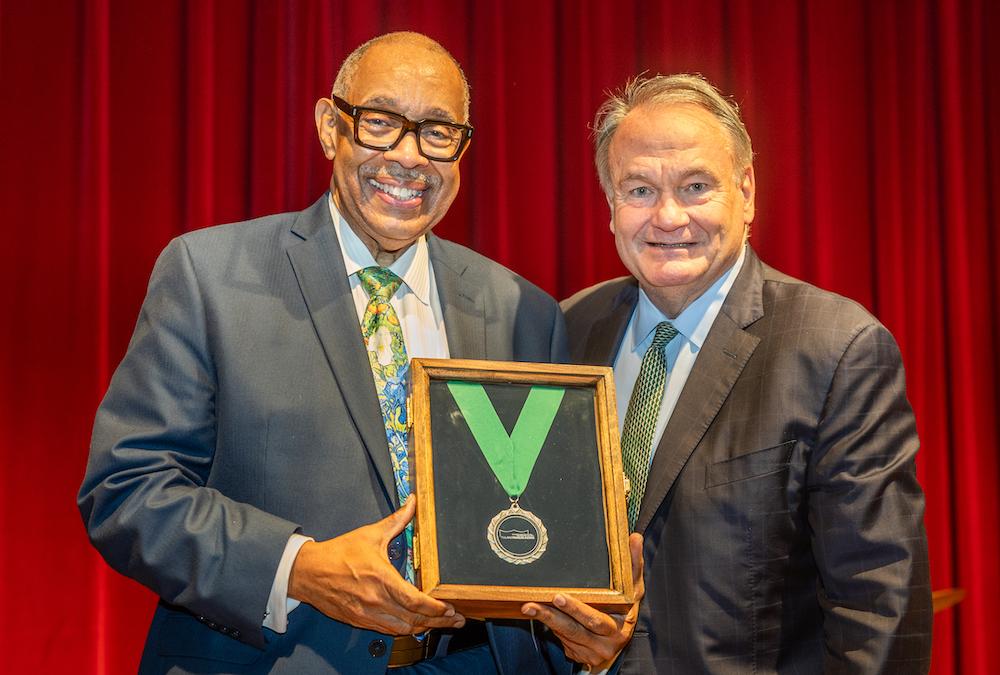Dr. Michael White recognized as Tulane Trailblazer with Jazz Series named in his honor
Photos by Kenny Lass
New Orleans musical legend, jazz scholar and Tulane alumnus Dr. Michael White was recognized as a Tulane Trailblazer at last week’s Thursday Night Jazz Series, a long-celebrated series hosted by the Newcomb Department of Music in the School of Liberal Arts. To mark White’s designation as a Trailblazer, the series was renamed the Dr. Michael White Thursday Jazz Series.
“It is hard to overstate Dr. White’s importance as a global ambassador of traditional New Orleans jazz,” said President Michael A. Fitts at the ceremony.
Speaking to White as he awarded him the Trailblazer medal, Fitts added, “In your many roles as a jazz clarinetist, bandleader, composer, music historian and lifelong educator, you embody the spirit of Tulane.”
The Tulane Trailblazers initiative was started by Fitts in 2019 to celebrate the contributions of Tulanians who have made a substantial and lasting impact on the university.
A New Orleans native, White was first inspired by his aunt, a clarinet player who encouraged him to pick up the instrument. He carried his interest into the St. Augustine Marching Band and continued to pursue his passion in several musical groups before eventually founding his own — the Original Liberty Jazz Band — in 1981. White still leads this band today, with special appearances yearly at Tulane’s Convocation and Commencement ceremonies.
“I was blessed to be born in a city with such a rich cultural heritage and into a family that contributed to the birth of New Orleans' most important creation: jazz,” White said. “I am often asked how I became successful and developed a distinctive persona in the rich, crowded and competitive local musical landscape. My answer always draws puzzling looks: ‘It is simple. I went to Tulane and earned a doctorate in Spanish.’”
While pursuing his degree, White often frequented the university’s Hogan Archive of New Orleans Music and New Orleans Jazz, where he said he “listened to obscure recordings, read interviews and books, and learned many things about early jazz history that were unobtainable elsewhere.”
Curated by jazz pianist and music professor Jesse McBride, each installment of the Dr. Michael White Thursday Jazz Series features accomplished New Orleans musicians, jazz legends and visiting artists, as well as students and faculty from the Black American Music Program.
“It is deeply fitting to honor Dr. Michael White’s legacy by naming the Thursday Jazz Series after him,” said Brian T. Edwards, dean and professor in the School of Liberal Arts. “While he did the intense research and writing that was required to earn his PhD in Spanish, he took study breaks in the Hogan Jazz Archive. Those were fortuitous wanderings, not only in allowing him to learn more about jazz history, but in establishing a relationship between apparently disparate practices — which he so brilliantly brings together in his performances.”
White has been named a Chevalier of Arts and Letters by the French government, a National Heritage Fellow by the National Endowment for the Arts, and Humanist of the Year by the Louisiana Endowment for the Humanities. His portrait was also recently added to the Smithsonian’s National Portrait Gallery.
“I have received many honors and awards for my clarinet playing, writing, recordings and band performances, but this recognition as a Tulane Trailblazer and having the jazz concert series named after me is among the most meaningful,” White said, looking back at his nearly 50-year career. “I thank the university for this great honor and acknowledgment at this important time in my life; a time when the seeds that were planted long ago by the elders and Tulane continue to blossom in new and exciting ways.”
The renaming ceremony also featured remarks by McBride and Courtney Bryan, the Albert and Linda Mintz Professor of Music in Tulane’s School of Liberal Arts and MacArthur Genius Grant recipient, as well as a performance by musician Julian Garcia with the students from the Black American Music Program. Future series performances will be held throughout the year and are free and open to the public.




